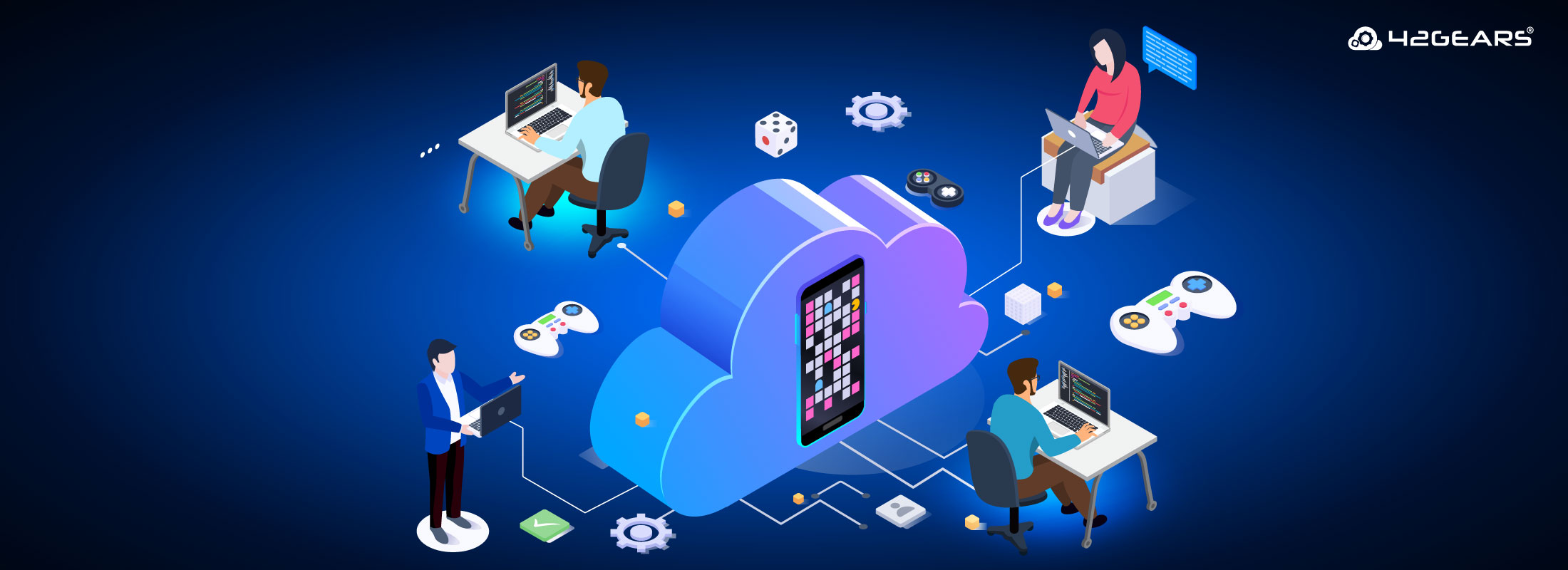Master Mobile Game Testing: Slash Costs & Ship Flawless Games with a Private Device Farm
nov 03, 2025 | Harshita B
In mobile gaming, players have zero patience for lag, crashes, or bugs. A flawless launch is non-negotiable. But ensuring your game runs perfectly on every target device is a massive challenge for QA teams, often leading to budget overruns and release delays.
Let's break down the most common mobile game testing roadblocks and how to conquer them.
1. The Challenge: High Hardware Costs and Underutilized Devices
Your QA team in one city needs a specific device that's sitting idle on a developer's desk in another. This forces you to buy duplicate hardware, wasting budget and limiting the scope of your device compatibility testing.
- The Solution: Implement a centralized device management system. This allows globally distributed teams to remotely access and share a single pool of physical devices, eliminating redundant hardware and maximizing the ROI of each phone and tablet.
- How AstroFarm Helps: AstroFarm transforms your existing devices into a secure, private device farm. Your teams worldwide can remotely access any device in your inventory as if it were in their hands. Device grouping and scheduling features prevent conflicts, creating one efficient global lab from the hardware you already own.
2. The Challenge: Unpredictable Public Cloud Costs and Delays
Public cloud device farms charge by the minute or hour. For gaming, which requires extensive parallel testing and long test sessions, these costs can spiral out of control. Worse, waiting in queues for popular devices slows down your entire QA workflow.
- The Solution: Move to a dedicated, private testing infrastructure. With a fixed set of devices exclusively for your team, you get unlimited access without per-use fees, enabling scalable parallel testing on your own schedule.
- How AstroFarm Helps: With AstroFarm, you use your own devices, so there are no hourly fees. Your team gets 24/7 access to a dedicated device pool, eliminating queues and "device busy" messages. Run as many parallel tests as you need to accelerate your release cycle without unpredictable costs.
3. The Challenge: Poor Visibility into Real-Time Game Performance
A game might run smoothly for ten minutes before performance degrades, frames drop, or the device overheats. Without insight into the device's resource usage, QA teams are left guessing whether it's a memory leak, a CPU spike, or an inefficient shader.
- The Solution: Utilize testing tools that provide real-time performance metrics. Monitoring key stats like CPU, memory, and data consumption during gameplay allows testers to identify performance bottlenecks under heavy load.
- How AstroFarm Helps: AstroFarm’s integrated performance monitoring gives you a live dashboard of CPU, memory, battery, and network usage during any test session. Pinpoint the exact moments your game strains the hardware, making it easier to optimize for a smooth player experience.
4. The Challenge: Slow and Frustrating Bug Fixing
When a game crashes, the bug report often lacks the technical details developers need. This forces QA to waste time manually reproducing the issue and developers to sift through generic logs, creating a bottleneck in the bug-fixing process.
- The Solution: Automate the collection of detailed crash logs. When a crash occurs during a test, the system should instantly capture and deliver comprehensive logs—including stack traces—directly to the development team for rapid diagnosis.
- How AstroFarm Helps: AstroFarm automatically captures detailed crash logs the moment an application fails on a test device. Developers get immediate access to the critical data they need to identify the root cause, fix bugs faster, and keep the development pipeline moving.
5. The Challenge: Inefficient and Inaccurate UI Testing
Manually testing UI elements and gestures across dozens of screen sizes is tedious and prone to error. Documenting visual glitches or unresponsive controls with static screenshots often fails to capture the full context of the issue.
- The Solution: Use a remote testing platform that offers high-fidelity screen control, recording, and automation. This allows testers to interact with the game naturally (tap, swipe, pinch) and precisely document bugs with video recordings or automated scripts.
- How AstroFarm Helps: AstroFarm provides seamless remote control of any device. Testers can pop out the screen, interact with the game's UI in real-time, and use screen recordings to create perfect bug reports. For repetitive actions, the macro recorder captures and replays exact sequences of taps and swipes, ensuring bugs can be replicated consistently.
Game Over for Testing Roadblocks
Stop letting hardware limitations, budget constraints, and inefficient workflows slow you down. AstroFarm centralizes your devices, provides critical performance insights, and automates tedious tasks, empowering your team to test smarter and ship better games.
Schedule your personalized demo today
and see how AstroFarm helps you
ship flawless games, faster.
Subscribe for our free newsletter


